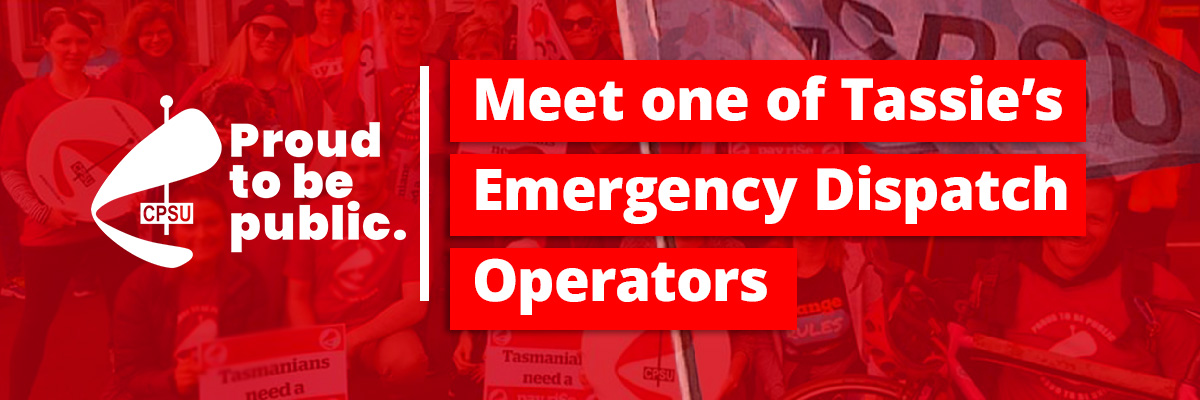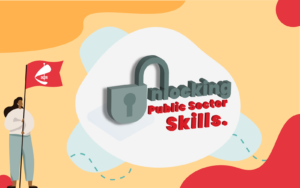
It’s International Control Room Week, which recognises the fantastic work workers in emergency services perform at the other end of the phone line. They are often the first point of contact when things go wrong. We chatted to Police Emergency Dispatch Operator Joel Solak and CPSU Delegate about the role!
About the job:
We coordinate communication between members of the public and emergency services then translate that information. We take emergency calls from the public – that’s all manner of calls – and then dispatch that information to Tasmania Police. It’s a similar model for Tasmania Fire Service and Ambulance Tasmania as well.

The workload has changed significantly over the last few years, particularly as the population of Tasmania has increased, you can imagine that the volume of incidents that need addressing has gone up as well. The very nature of the service has changed, a lot of people are using the number for general advice, and transport matters, health matters and the like.
COVID had an impact in terms of crime – it significantly reduced but there was an unfortunate impact on family violence, because of isolation.
Teamwork is critical:
We have 120+ staff, and we would all know each other. You have to work well in a team environment. In every job interview people are asked how well they function in a team – this is one of those jobs where it’s absolutely pivotal. You have to be able to collaborate and communicate, you have to be able to interpret other people at a second’s notice.
No two days are the same:
You never know what kind of call you’re going to get. You could find yourself coordinating a serious accident, or assisting with a mouse in a bathtub, and everything in between. You have to be consistently calm, collected and prepared for anything.
We’ve had quite a few phone calls in relation to possums stuck in trees and if we could go and rescue them, from people who’ve moved here from overseas and are not familiar with our native fauna. From their perspective, you can imagine if you’ve never seen a possum before.
No two days are ever the same at all. It can be like a jigsaw puzzle, and it’s really rewarding – you put the pieces together and you end up helping someone and making a positive difference in that moment.
To those at the other end of the line:
It’s important to be conscious of the way that you communicate, and just to be conscious of the difference between an emergency and a non-emergency. An emergency typically has a life-threatening nature and is time sensitive. A non-emergency is something that can be dealt with but if it’s not dealt with right this second it doesn’t stand to cause injury or harm to people or property.
It’s helpful to know whether you need to call the Emergency 000 line or the Police Assistance Line (131 444) for a non-emergency. And just being conscious that if you’re taking up time on an emergency line, you could be impacting on someone else getting help when they need it most.
Thank you to members working across control rooms – we know you are there, ready to respond to Tasmanians who need help.








